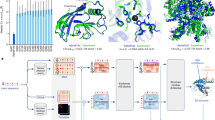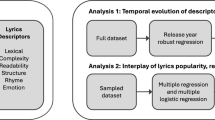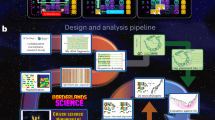Abstract
Programming a computer to play board games is an effective way of modelling a set of problem solving strategies. The analysis of games played against such programs is a convenient laboratory method for studying human intellectual capacities, including skills allied to social intelligence.
This is a preview of subscription content, access via your institution
Access options
Subscribe to this journal
Receive 51 print issues and online access
$199.00 per year
only $3.90 per issue
Buy this article
- Purchase on Springer Link
- Instant access to full article PDF
Prices may be subject to local taxes which are calculated during checkout
Similar content being viewed by others
References
Murray, H. J. R., A History of Chess (Oxford Univ. Press, London, 1913).
Good, I. J., Machine Intelligence, 2 (edit. by Michie, D., and Dale), (Oliver and Boyd, Edinburgh, 1968).
Binet, A., Psychologie des Grands Calculateurs et des Joueurs d'Echecs (Hachette, 1894).
De Groot, A. D., Thought and Choice in Chess (Mouton, The Hague, 1965).
Murray, H. J. R., A History of Board Games other than Chess (Oxford Univ. Press, London, 1952).
Bell, R. C., Board and Table Games (Oxford Univ. Press, London, 1960).
Elithorn, A., and Jagoe, R., Proc. NATO Symp. on the Simulation of Human Behaviour, Paris, 205 (1969).
Smith, C. A. B., J. Recreat. Math., 1, 67 (1968).
Anastasi, A., Psychological Testing (Macmillan, London, 1961).
Anstey, E., Psychological Tests (Nelson, London, 1966).
Elithorn, A., and Telford, A., Intern. J. Man-Machine Stud., 1, 189 (1969).
Toda, M., Rep. No. 1, Institute for Research, State College of Pennsylvania (1963).
Travis, L., Proc. Spr., J. Comput. Con., 25, 339 (1964).
Gardner, M., Sci. Amer., 205 (1961).
Buckingham, R. A., Elithorn, A., Lee, D. N., and Nixon, W. L. B., Nature, 199, 676 (1963).
Elithorn, A., Jagoe, J. R., and Lee, D. N., Nature, 211, 1029 (1966).
Moore, E., Ann. Computat. Lab. Harv. (1959).
Lee, D. N., J. Math. Psychol., 4, 341 (1967).
Abrahams, G., The Chess Mind (Penguin, Harmondsworth. 1951).
Author information
Authors and Affiliations
Rights and permissions
About this article
Cite this article
ELITHORN, A., TELFORD, A. Game and Problem Structure in Relation to the Study of Human and Artificial Intelligence. Nature 227, 1205–1210 (1970). https://doi.org/10.1038/2271205a0
Received:
Revised:
Issue Date:
DOI: https://doi.org/10.1038/2271205a0
Comments
By submitting a comment you agree to abide by our Terms and Community Guidelines. If you find something abusive or that does not comply with our terms or guidelines please flag it as inappropriate.



